For several years now, the section of Vegetable System Modelling has been active in various programmes to strengthen the cooperation between African and German scientists. The main aim is to transfer horticultural knowledge, methods and know-how for practical application under local conditions in Africa:
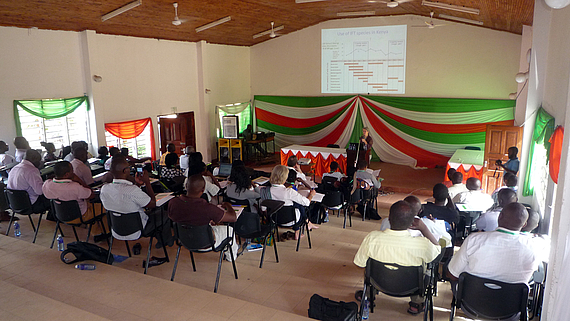
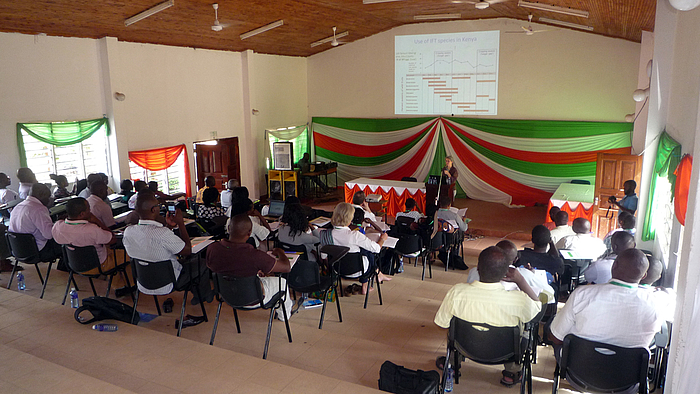
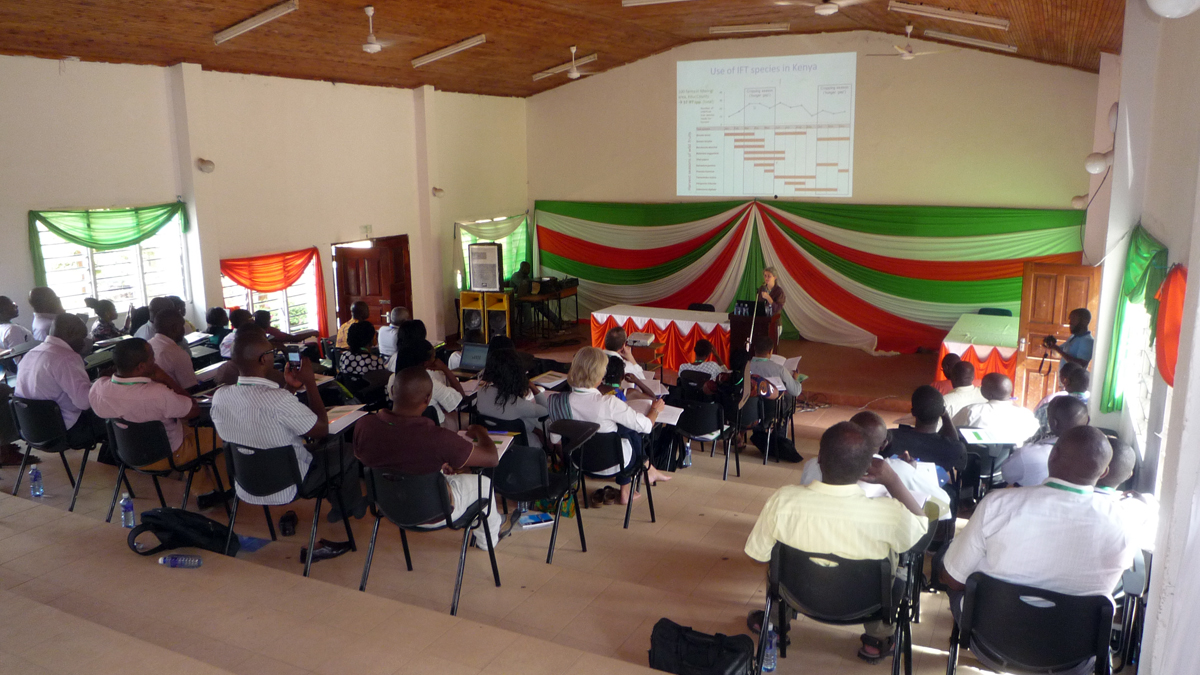
Current capacity building projects
SVePiT: Sustainable Vegetable Production in the Tropics
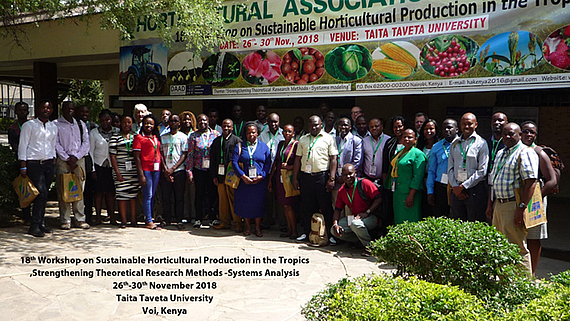
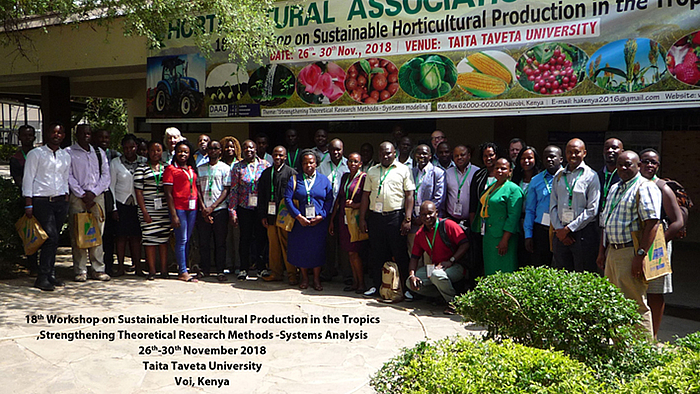
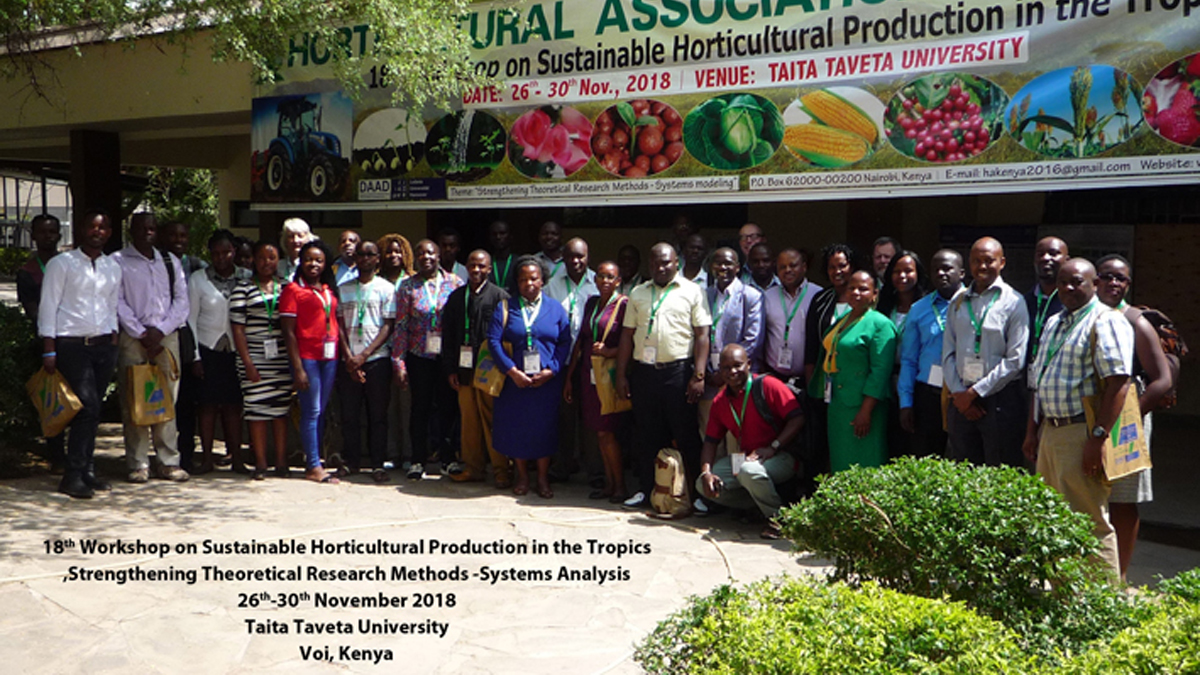
SVePiT – Sustainable Vegetable Production in the Tropics – is rooted in a collaborative project between the Faculty of Natural Sciences of the Leibniz Universität Hannover, Germany, and the Department of Horticulture of the Jomo Kenyatta University of Agriculture and Technology, Kenya.
The aim of this project is to support the sustainability of horticultural production in the tropics by
- promoting cooperation between scientists of East Africa and Germany
- organize workshops and meetings for scientific exchange
- developing sustainable production systems by promoting experiments
- transfering the results to the farmers
The project is sponsored by the Alumni Programme DAAD (German Academic Exchange Service).
Volkswagen Foundation: Africa Initiative
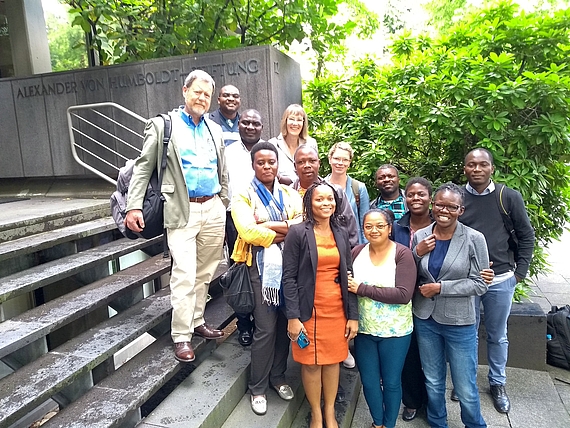
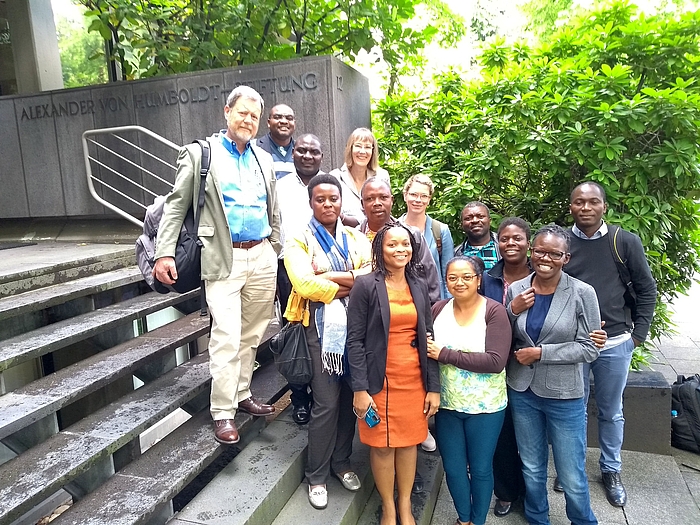
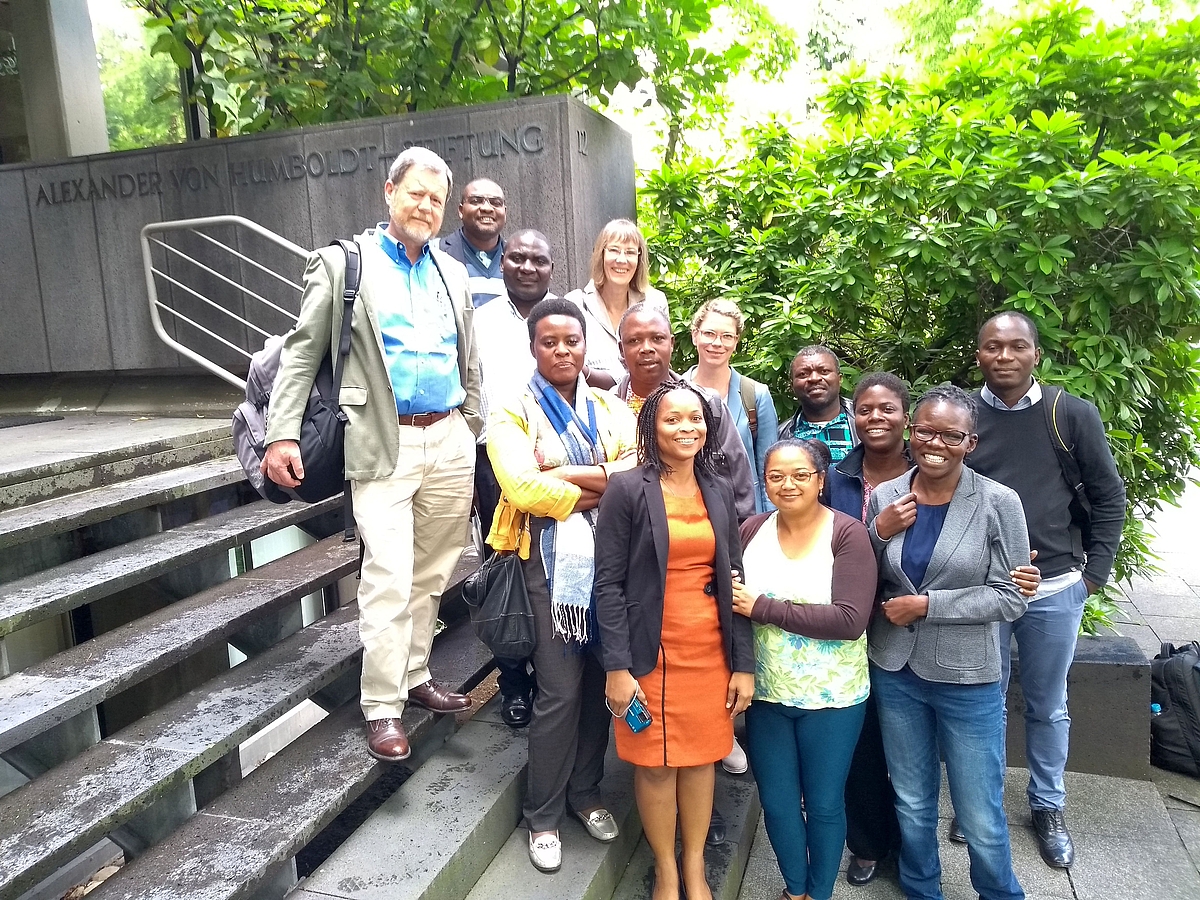
The Institute for Horticultural Production Systems coordinates the fellows programne in the Natural Resources framework of Volkswagen Foundation's Africa Initiative. Seven postdoctoral fellows from five African countries were selected in 2018 and awarded a research grant to continue previous projects from the period 2014 to 2017 in the new phase from 2018 to 2020. All organizational aspects with respect to the project budget and joint workshops are coordinated by Prof. Hartmut Stützel head of the Vegetable Systems Modeling Section of the IGPS.
-
Summer schools, workshops, seminars and other events
Summer School | Cotonou/Benin | 27. July - 10. August 2019
Volkswagen fellows planned, organised and carried out a summer school "Sustainable Natural Resource Management" for young scientists from all over Africa at the University of Abomey-Calavi, Benin. Major courses included natural resource management, introduction to QGIS, introduction to R-programming, statistical analysis using PAST, google earth applications, data collection using mobile devices and data governance. Two more summer schools are planned.Workshop | Bonn | 03. - 06. June 2019
The Fellows met with the project coordinator and the person in charge of the Volkswagen Foundation for a small workshop format in Bonn. During the four days, various research funding institutions were visited, including the DAAD (German Academic Exchange service), the DFG (Deutsche Forschungsgemeinschaft), the Alexander von Humboldt Foundation, and the ZEF (Center for Development Studies) of the University of Bonn, and possibilities for cooperation were explored. Furthermore, the planning of the big summer school in Benin required discussion and completion.
Workshop | Hannover | 21. – 23. February 2018
The progress of the research projects was presented by the fellows and upcoming ideas have been discussed for preparation of application for upcoming call for Postdoctoral Fellowships on "Resources, their Dynamics and Sustainability - Capacity Development in Comparative and Integrated Approaches".
Workshop | Hannover | 25. – 28. November 2015
The progress of the research projects was presented together with the German counterparts and the fellows participated in several soft skill workshops, such as stress management, Social science research methods and systems modeling.
On the last day, the fellows visited the Nationalpark Harz and the historic city center of Goslar.Workshop | Antananarivo |16. – 22. March 2015
To discuss issues related to the upcoming project work, a Kick-off meeting for the new selected fellows (2014-2017) of the Volkswagen Foundation´s Africa Initiative was held in Antananarivo, Madagascar. There they met the junior fellows from the previous funding period (2010-2013) on their closing workshop and had the opportunity to participate in several joint activities.
In addition to the project presentations, sessions on proposal writing, research ethics and research funding were offered as well as an interesting joint excursion to the biodiversity hotspots in the Antananarivo region.Selection conference "Natural Ressources 2014“ | Hannover | 18.-20. June 2014
The Volkswagen Foundation's Africa initiative "Knowledge for Tomorrow – Cooperative Research in Sub-Sahara Africa" and the Institute for Horticultural Production systems of the Leibniz Universität Hannover hosted the international selection conference for African junior researchers and postdocs. The focus was on selecting candidates for the research fellowship of the Volkswagen Foundation.
The invited candidates were applicants for senior fellowships, who partly already have been funded by Volkswagen Foundation, as well as for junior fellowships, who applied for the first time for a Volkswagen Foundation grant. At the conference, the fellows presented their projects and were also in interviewed by a selection committee. In addition, a workshop on scientific writing was organized and the participants could also enjoy a cultural programme in Hannover. The topics of the scientific projects ranged from research on water quality and soil degradation to agricultural pest management and biodiversity conservation. After the conference, an international team of six renowned reviewers will decide on which scientific projects will receive a fellowship.
Grantee's meeting 2013 | Hannover | 13. – 15. October 2013
The intent of the joint meeting was to discuss possibilities and challenges for research in Africa in order to stimulate new insights and knowledge for a sustainable scientific environment in Africa as well as for the needs of African scholars in the international scientific community. The main focus was on interdisciplinary research and gave the African fellows a valuable opportunity to reflect and exchange their research with other grantees working in all the funding initiative's different thematic areas. Guest speakers from renowned research and funding institutions contributed to the discussion with their keynote lectures and presentations. In addition, the program offered thematic workshops on research funding and science careers as well as a poster session, where all the fellows displayed their major achievements regionally clustered.
The invited participants included 64 African junior fellows, their 18 German postdoctoral partners, the 13 coordinators of the six different thematic areas of the initiative, as well as guest speakers, panelists and various special guests from renowned research institutions, the project leaders and representatives from Volkswagen Foundation and Leibniz Universität Hannover. Also present was a delegation from Tanzania lead by the Secretary of the Ministry of Education and Vocational Training.
Versatile mentoring programme
The call "Resources, their Dynamics and Sustainability – Capacity Development in Comparative and Integrated Approaches" within the Africa Initiative embraces projects in the field of natural and biological resources which are independently developed and implemented by the African postdoctoral scientists. The program includes the selection of a mentor who provides advice and introduces the young scientists to international scientific networks. In addition, a German postdoctoral counterpart can be selected to participate in the project.
The fellows cover a broad range of disciplines in the natural sciences, ranging from Biology, Ecology, Geoscience and Mathematics to Agriculture, Animal Husbandry and Entomology. This collaboration between Volkswagen Foundation and the institute started in 2010 and is currently in its third phase.


